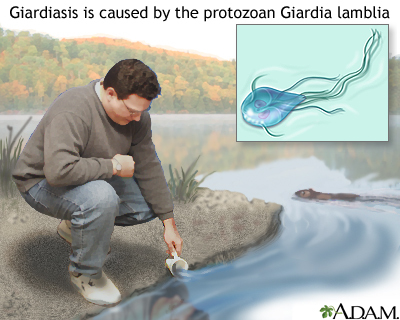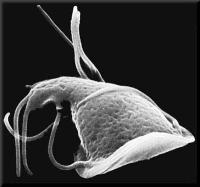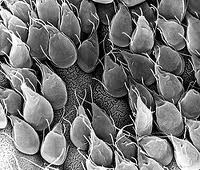- Your Government
-
Our Community
-
- About St. Helens History of St. HelensState of the CityCourthouse Dock Camera
- Local Events City Calendar Citizens Day in the ParkRecreation Activities Discover Columbia County Sand Island CampingKeep It Local CC
- Community Resources City Newsletter City Social Media Emergency Services New Resident InformationProtecting Our Environment
-
-
Business & Development
-
- Local Business Directory Get a Business License City Bids & RFPs Broadband Study
- Business in St. Helens St. Helens Advantages Directions & Transportation Incentives & Financing Resources for Businesses Business Guide Columbia Economic Team Chamber of Commerce
- Current City Projects Waterfront Redevelopment Public Safety Facility Strategic Work Plan
-
-
How Do I?
-
- Apply for a Job Apply for a Committee Find A Park Find COVID Info Find Forms Follow St. Helens - Facebook Follow St. Helens - Twitter Follow St. Helens - YouTube
- Get a Police Report Get a Business License Get a Library Card Get a Building Permit Newsletter Signup Past Public Meetings Pay My Water Bill
- Public Records Request Report a Nuisance Register for Rec Activity Reserve a Park Sign Up for the 911 Alerts Universal Fee Schedule
-
Giardia - Think Before Drinking from a Stream.
Giardiasis
Giardiasis is an intestinal infection caused by a protozoan and is spread by contaminated water or contact with an infected person. People who are travelling or hiking should assume water sources are contaminated and either purify drinking water or drink bottled water. Healthcare or daycare workers should practice good hygiene when going from person to person.
Causes, incidence, and risk factors
Giardiasis outbreaks can occur in communities in both developed and developing countries where water supplies become contaminated with raw sewage.
It can be contracted by drinking water from lakes or streams where water-dwelling animals such as beavers and muskrats, or domestic animals such as sheep, have caused contamination. It is also spread by direct person-to-person contact, which has caused outbreaks in institutions such as day care centers.
Travelers are at risk for giardiasis throughout the world. Campers and hikers are at risk if they drink untreated water from streams and lakes. Other risk factors include:
- Exposure to a family member with giardiasis
- Institutional (day care or nursing home) exposure
The time between being infected and developing symptoms is 7 – 14 days. The acute phase lasts 2 – 4 weeks.
Signs and tests:
Symptoms
- Abdominal pain

- Diarrhea
- Gas or bloating
- Headache
- Loss of appetite
- Low-grade fever
- Nausea
- Swollen or distended abdomen
- Vomiting
Tests that may be done include:
- Enteroscopy
- Stool antigen test to check for Giardia

- Stool ova and parasites exam
- String test (rarely performed)
This disease may also affect the results of the following tests:
- D-xylose absorption
- Small bowel tissue biopsy
- Smear of duodenal aspirated fluid
Treatment
Some infections go away on their own. Anti-infective medicines may be used.
Cure rates are generally greater than 80%. Drug resistance may be a factor in treatment failures, sometimes requiring a change in antibiotic therapy.
In pregnant women, treatment should wait until after delivery, because some drugs used to treat the infection can be harmful to the unborn baby.
Expectations (prognosis)
It is common for the infection to go away on its own. However, persistent infections have been reported and need further antibiotic treatment. Some people who have had Giardia infections for a long time continue having symptoms even after the infection has gone.
Complications
- Dehydration
- Malabsorption (inadequate absorption of nutrients from the intestinal tract)
- Weight loss
Calling your health care provider
Call your health care provider if:
- Diarrhea or other symptoms last for more than 14 days
- You have blood in the stool
- You are dehydrated
Prevention
Use a water purification method such as boiling, filtration, or iodine treatment before drinking surface water. Hikers or others who use surface water should consider all sources as potentially contaminated.
Workers in day care centers or institutions should use good handwashing and hygiene techniques when going from child to child or patient to patient.F
For more information about ways to disinfect and prepare water for drinking please see the article entitled "Are you ready for when an emergency event occurs"
References
Hill DR, Nash TE. Giardia lamblia. In: Mandell GL, Bennett JE, Dolin R, eds. Principles and Practice of Infectious Diseases. 7th ed. Philadelphia, Pa: Elsevier Churchill Livingstone; 2009:chap 280.
Huston CD. Intestinal protozoa. In: Feldman M, Friedman LS, Sleisenger MH, eds. Sleisenger & Fordtran’s Gastrointestinal and Liver Disease. 8th ed. Philadelphia, Pa: Saunders Elsevier; 2006: chap 106.
Review Date: 5/25/2010.
Reviewed by: Linda J. Vorvick, MD, Medical Director, MEDEX Northwest Division of Physician Assistant Studies, University of Washington, School of Medicine; Jatin M. Vyas, MD, PhD, Assistant Professor in Medicine, Harvard Medical School; Assistant in Medicine, Division of Infectious Disease, Department of Medicine, Massachusetts General Hospital. Also reviewed by David Zieve, MD, MHA, Medical Director, A.D.A.M., Inc.

